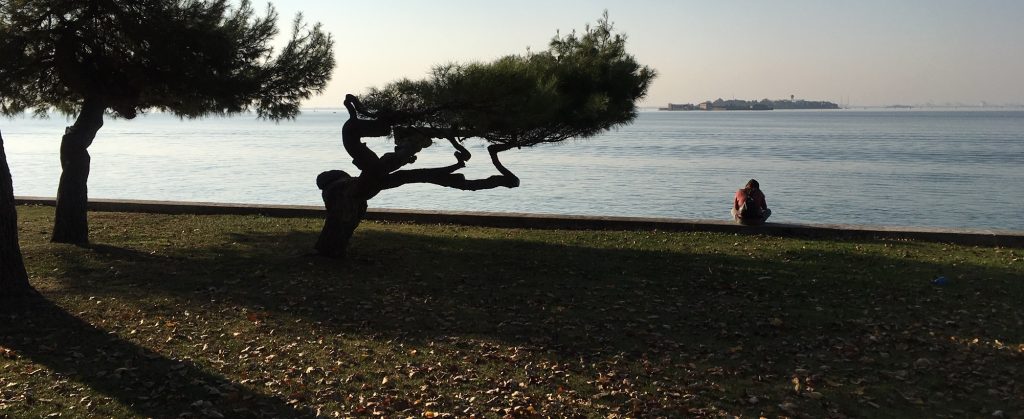How to ease coronavirus-related anxiety
I’d like to introduce a simple practice that I believe can really help with managing uncomfortable feelings. It’s relevant in any situation, but perhaps particularly so at a time when more of us are dealing with unaccustomed feelings because of the unusual situation we’re in, with changes to routine, uncertainty, fears for ourselves or loved ones and other challenges. ‘Covid-19 anxiety’ is becoming a catch-all term for all sorts of ways in which our emotional and mental wellbeing may be thrown off balance.
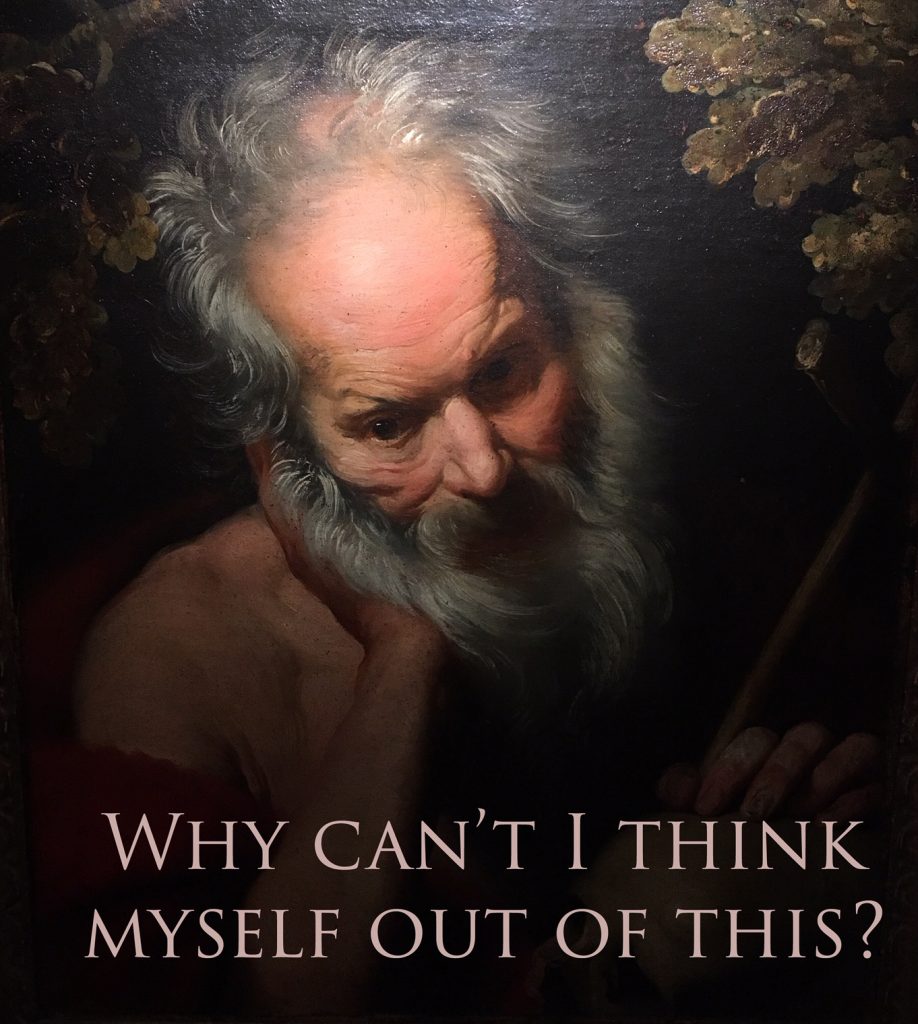
Focusing, or ‘inner relationship focusing’, is a way of easing difficult feelings. Notice I don’t say ‘getting rid’ of feelings. I’m used to hearing from people that they want to get rid of feelings of anxiety or overwhelm or stress or despair. If that’s you, then you might not like it when I say that, in my experience – and I’m talking about my personal experience as well as professional – what really makes a difference is when you stop pushing those feelings away.
What is ‘Focusing’?
Inner relationship focusing is a term coined by Ann Weiser Cornell who worked with Eugene Gendlin , the originator of ‘Focusing’. Gene Gendlin studied under Carl Rogers, who founded person-centred therapy. Gendlin did extensive research in the 1950s and 60s, in an attempt to ascertain what made psychotherapy successful for some clients but less so for others. He found that clients who made positive lasting change had an innate ability to pause and check ‘inside themselves’, to access a body feel of their issues, an intuitive ‘felt sense’ which they could learn from for their personal development and growth.
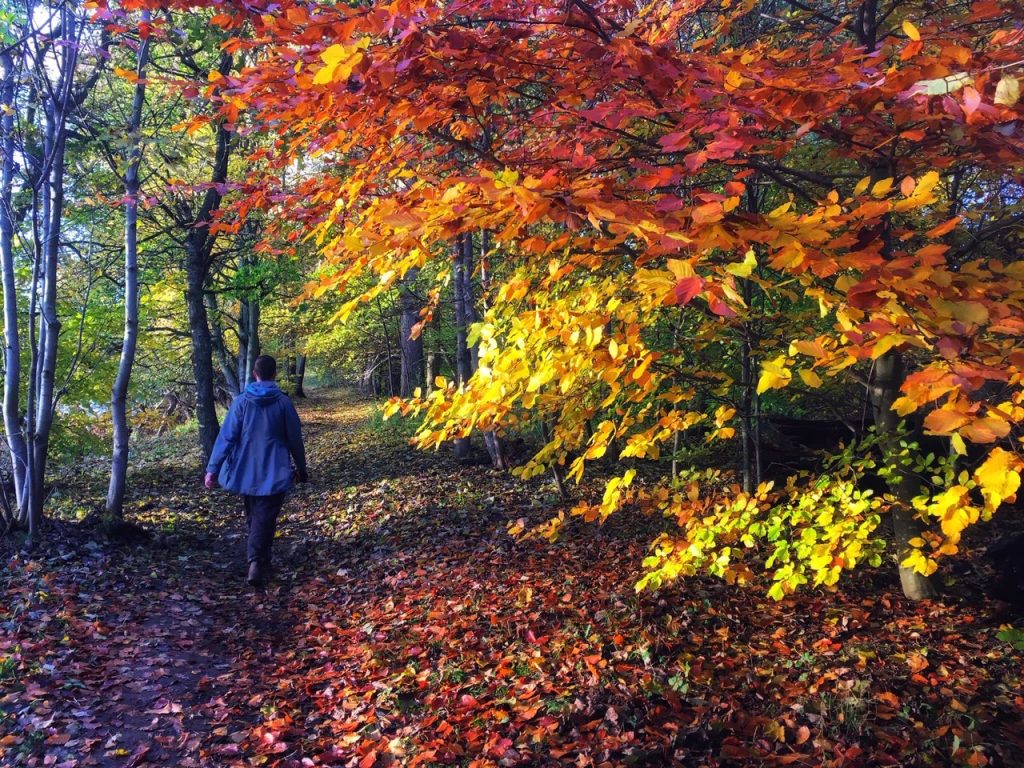
Gendlin went on to develop a step-by-step process, by which clients who didn’t have this ability naturally, could be taught it – not only to get more from therapy, but to work on issues or challenges themselves. Ann Weiser Cornell , a student of Gendlin’s, went on to develop her inner relationship focusing from this.
How can Focusing help me?
Three years ago I uprooted myself from my home and moved with my partner to Italy for two years. Various circumstances led to this being possible, and for it to be the right time (post Brexit referendum but pre-Brexit!) to do it. What I thought in my conscious mind was: “It’s going to be a bit tricky in some ways but it’s a great opportunity and I’m lucky to be able to do it.”
Underneath all this – and mostly ignored and suppressed by me – was terror at the unknown and the fear that I wouldn’t be able to cope in a country where I didn’t speak the language and didn’t know how things worked.
You know what? It was bloody hard. I wasn’t working for the first time in my adult life. I didn’t speak the language. I didn’t have any friends or family close by, other than my partner. Everything was complicated by not knowing how things worked. BUT what made it harder was that, at the start, I didn’t allow myself to really feel how difficult and frightening all this stuff was, because I was living in the most beautiful city in the world and so I was ‘lucky’. I was aware there was a lot of discomfort, and that I wasn’t feeling happy and skippy – but also there were lots of times when I was excited and happy at the newness and beauty of it all – the ‘acceptable’ feelings.

My feelings about the experience were unique to me – my own history and personal baggage lent their own twist – but even as I began to acknowledge that there were feelings of fear and loneliness and shame (at not having a wonderful time) I was ruminating about how to get rid of them, figuring out what I could busy myself with to get through them or away from them quickly.
I’d been trying Focusing on and off over the previous 3 or 4 years, while also in personal therapy – and it had become something I used to try and make sense of intense feelings (a kind of emotional first aid when things became extreme). Because I knew it could be helpful when I was feeling things were getting on top of me, when I was anxious or stressed or emotionally overwhelmed, I began doing it more.
What I discovered was interesting. Focusing didn’t make those feelings of anxiety or stress or shame or overwhelm go away. As I look back on my experience of living in Italy, I remember vividly that it was both terrible and wonderful, and that, even after two years, I was still at times experiencing anxiety, fear and shame.
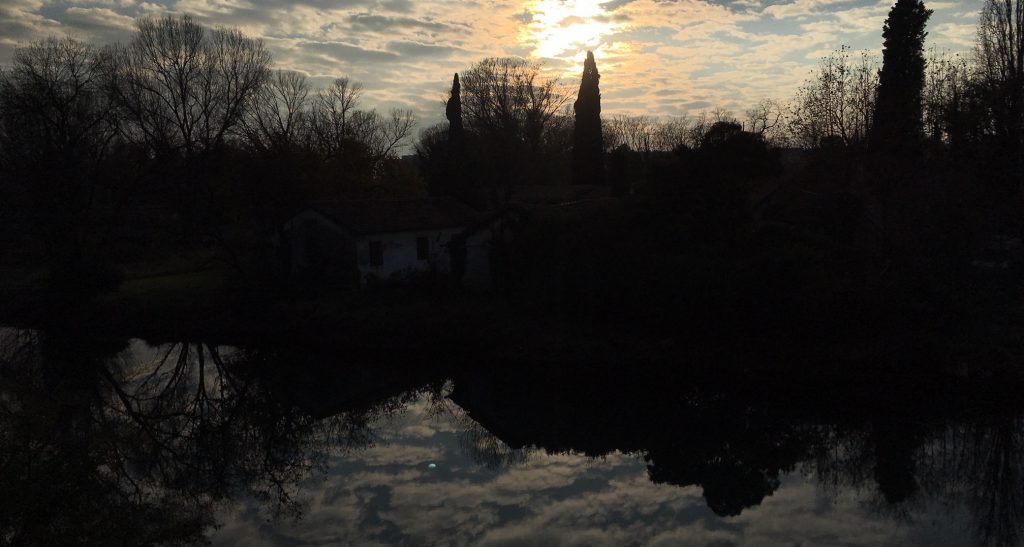
But what I learned was that I could tolerate these feelings by sitting alongside them. I learned that I could hold both the despair and the delight – sometimes at the same time – without being consumed. I also discovered that sometimes these parts of me, that were trying to get my attention, had some wisdom to impart, which I could learn from. My friend and colleague’s phrase “This is an AFLOG” (another fucking learning opportunity for growth), was never so apt as then.
A part that often came up during this time was my inner critic. So I might find myself sitting with something that was telling me I just needed to get on with things. Often as I stayed with this, I realized that this part was really scared and young, and ‘getting busy’ was its way of pretending it was grown up. The critic or the busy bee was trying to protect me in the only way it knew how. I see people writing about ways to ‘shut the inner critic up’ and I feel sad for that treatment of what is essentially someone’s inner child, who just needs to be listened to, but is manifesting itself in a way that feels ‘too much’.
My experience of feeling out of place, not belonging and not knowing how to belong, has been invaluable to me in my work since then with clients. Developing my practice to offer online therapy (so that I could continue to work with English-speaking clients) was unexpectedly invaluable in the current setting where suddenly online counselling is all there is.
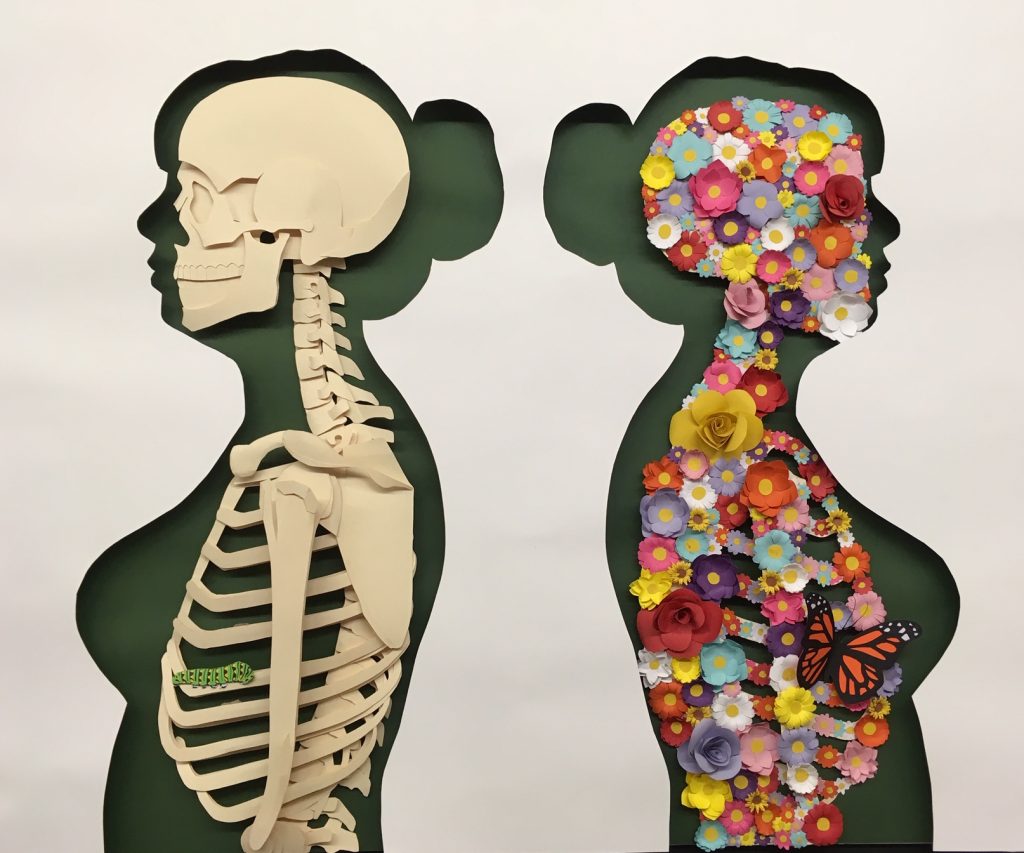
But more valuable than both of these has been learning the ability to sit with the not-knowing, to feel anxious, or afraid, or not-good-enough – to be able to say to those parts of me “Oh hey there! I know you’re there. I know you’re feeling [whatever]” and to be able to carry on. Don’t get me wrong – that inner critic is still there (this time saying “you shouldn’t be feeling that your emotional wellbeing is affected by coronavirus lockdown because you’re an experienced online counselor”)…….but I’m able to recognise it pretty quickly and to give it space while still allowing the feelings of sadness and missing family and friends and routine.
How is Focusing different from meditation or mindfulness?
You might already be familiar with exercises or practices that can help you soothe yourself, like mindfulness or meditation. In which case you might not be interested in learning about another one! Focusing is much like mindfulness…..AND it’s more. Because with Focusing there’s the opportunity, not only to notice when something comes into your awareness but, rather than letting it pass through, to form a relationship with it, listen to it – and learn from it. It can be soothing, it can be calming – and more too.
“If I let my anxiety in, won’t I become overwhelmed?”
Here’s a metaphor for you. Imagine that the anxiety (or feeling, or self-critical thought) is a little child wanting to get your attention. You ignore it. It shouts louder. You shut it in a cupboard. It really needs to scream now to be heard. And it’s going to carry on screaming even if you try and pretend it’s not there. What would happen if instead you let it out of the cupboard, take it in your arms and soothe it?
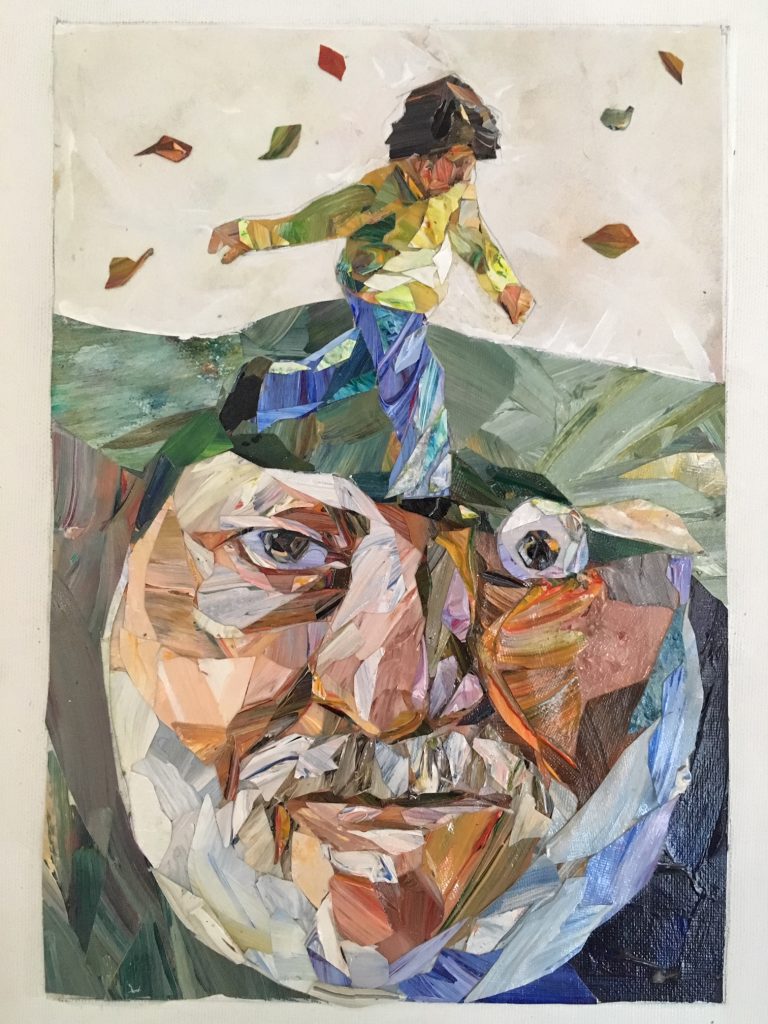
That’s how I think about uncomfortable feelings. Whether it’s anxiety, feeling that you’re out of control, thinking that you’re not good enough – there’s a part of you that’s trying to get your attention, and the more you ignore it the harder it tries. The practice of inner relationship focusing is a way of giving those feelings some space without becoming overwhelmed by them, because it encourages you to sit alongside them – like you might sit with a friend – rather than be in them. I see these ‘parts’ as being rooted in myself at different times in my life – part of my ‘inner child’, if you will – and by spending time with them I’m doing some gentle parenting.
The easiest way of understanding what inner relationship focusing is, is to try it! I’ve included a video at the end of this blog that talks you through a very brief version of a focusing exercise so you can try it for yourself. If you want to skip the preamble, you can fast forward to about 2 minutes 20 seconds in, to the start of the exercise.
My own experience of Focusing encouraged me to learn more, initially with a Focusing Skills certificate, and I’m currently studying to become a Focusing Practitioner. I use a Focusing way of being in my work with clients, and I also teach them Focusing, if they’re interested, as a way of becoming more comfortable at ‘checking-in’ with themselves.
If you want to learn more about Focusing, including how to develop your own practice, check out the resources below.
Ann Weiser Cornell’s inner relationship focusing
Gene Gendlin’s six step guide to focusing
